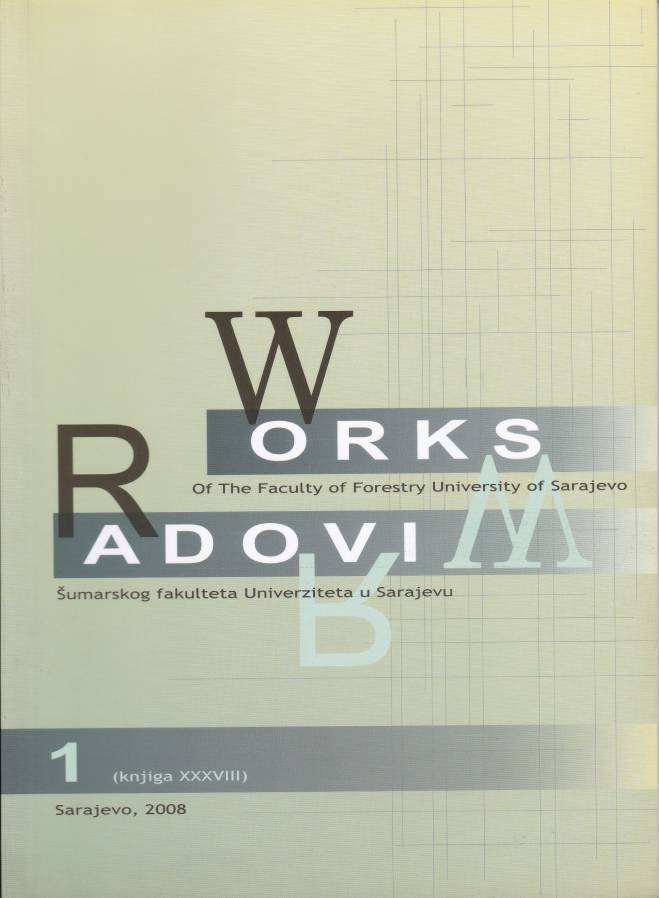The width of the cutting area for the road on different terrain slopes
DOI:
https://doi.org/10.54652/rsf.2008.v38.i1.178Keywords:
forest truck road, terrain slope, width of the cutting area for roadAbstract
UDK 630*38:625.725
Total length of the forest roads network is increasing day by day. Forest roads, besides numerous measurable useful effects on the forest management, cause certain damages in a narrow forest area where they are constructed. We can notice significant differences depending on the type of forest road, the terrain slope, and category of the terrain where forest road has been constructed.
In this paper the equations of regression for assessment of the width of the cutting area for the road, depending on the terrain slope, was derived by methods of regression and correlation. The analysis has been done for soft and hard terrain. By increasing the terrain slope from 24,7 % to 72,5 % the width of the cutting area for the road varied as follows:
- from 6,25 m to 19,77 m on the soft terrain
- from 6,3 to 10,41 m on the hard
The equations of regression from this paper have been applied on the Forest Management Unit ''Crna Rijeka''. Three distinct points have been extracted as follows:
- Department 2 had a total taken production forest area of 0 % because it did not have a single meter of road constructed.
- Department 3 had the terrain slope of 71,32 % and accessibility 50,28 m/ha and taken forest area due to roads construction amounted to 9,77 % for the soft terrain and 5,18 % for the hard terrain.
- Department 6 has accessibility of 20,27 % m/ha; the width of the cutting area for the road amounted to 3,38 % of the total department area for the soft terrain; while for the hard terrain it amounted to 1,92 % of the total department
- Due to the fact that total length of constructed roads network in this department was within optimum range for similar mountainous terrains the derived width of cutting area for the road is very close to the reports of numerous
Downloads
References
BAJRIĆ, M., 2005: Mogućnost konverzije glavnih traktorskih puteva nagiba do 12 % u prilazne kamionske puteve, Magistarski rad, Šumarski fakultet, Sarajevo.
JELIČIĆ, V., 1985: Studija otvaranja odjela 70 i 71 u GJ „Jadovnik – Drvar“ dio, Sarajevo
PIČMAN, D., 2007: Šumske prometnice, sveučilišni udžbenik, Šumarski fakultet Sveučilišta u Zagrebu, str. 1-460.
POTOČNIK, I., 2003: Forest road formation width as an indicator of human impact on forest environment. Ekológia (Bratislava), letn. 22. št 3, str. 298 – 304.
POTOČNIK, I., 2005: Depth of carriageway and cut slopes on forest roads. Zesz. Nauk. Akad. Rol. im. H. Kołłęataja Krak., Ses. Nauk., no. 419, 67 – 73, ilustr.
SOKOLOVIĆ, Dž., 2008: Uticaji nagiba terena na pravilan izbor vrste šumskog transportnog sredstva, Disertacija, Šumarski fakultet, Sarajevo






















